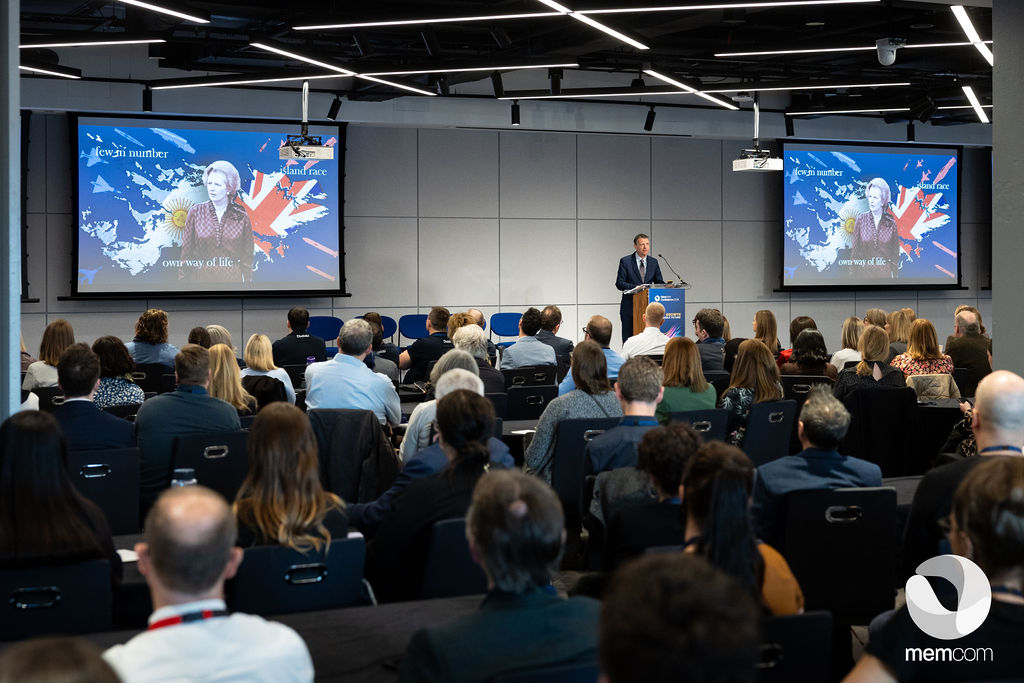At the Memcom Conference 2024, BBC News Home Editor Mark Easton took to the stage to deliver a keynote address that provided a profound insight into the collective psyche of the United Kingdom. Introduced by Peter Cheese, Chief Executive of the CIPD, Mark embarked on a journey through the social, political, and cultural landscape of Britain, offering a nuanced understanding of the nation's current state.
A Nation in Flux
Mark began by acknowledging the palpable sense of change sweeping through the UK, evident in the anticipation of an upcoming general election and the shifting political dynamics. With polls indicating a restless electorate hungry for change, he painted a picture of a nation grappling with anxiety and uncertainty.
Drawing on data from the Office for National Statistics, Mark highlighted rising levels of anxiety and depression, alongside a pervasive sense of loneliness and dwindling trust in government institutions. The statistics painted a sobering picture of a country in need of introspection and, perhaps, therapy.
Britain's Identity Crisis
Central to Mark's narrative was the theme of Britain's evolving identity, shaped by historical narratives and contemporary realities. From the imperial grandeur of the past to the post-war era of adjustment, he traced the nation's shifting self-perception, from global superpower to plucky underdog.
His analysis underscored the division inherent in Britain's self-image—an island nation torn between a sense of exceptionalism and an internationalist outlook. Brexit, he argued, encapsulated this tension, reflecting a nation grappling with conflicting narratives of independence and interconnectedness.
Data-driven Insights
Utilising data from sources such as the World Values Survey and the British Social Attitudes Survey, he discussed illuminating insights into British attitudes towards immigration, diversity, and social welfare. Contrary to prevailing stereotypes, he revealed a nation remarkably tolerant and accepting, with positive attitudes towards diversity and liberal values.
Planting Seeds for Future Generations
Reflecting on his past experiences, Mark recounted an insightful conversation with an estate manager about the significance of long-term planning. The manager's commitment to planting trees for future generations epitomised the kind of forward-thinking necessary to transcend short-term interests and prioritise enduring benefits.
The Call for Collective Responsibility
Echoing sentiments of generational responsibility, Mark emphasised the need for collective action to address societal challenges. He encouraged the audience, particularly the boomer generation, to contribute towards shaping a better future, emphasising the importance of putting back into the society that has nurtured them.
Reconciling National Identity with Internationalism
The discussion expanded to include the historical reconciliation of national identity with international cooperation. Examples like the European Convention on Human Rights highlighted Britain's role in promoting shared values globally. However, recent deviations from this approach, particularly in the aftermath of Brexit, posed challenges to Britain's soft power and global influence.

Navigating a Changing Geopolitical Landscape
Mark and Peter delved into the complexities of the current geopolitical landscape, emphasising the need for nuanced dialogue and cooperation in a world witnessing increasing polarisation. They acknowledged the inherent human tendencies towards division and the importance of fostering inclusive national conversations.
Restoring Trust and Agency
The conversation pivoted towards the crisis of trust permeating various sectors, from politics to public institutions. Despite challenges, Mark expressed optimism in the resilience of trusted sources and the potential for rebuilding trust through collective efforts and ethical leadership.
Empowering Communities for Productivity
In addressing the productivity gap, he advocated for decentralisation and community empowerment. Recognising the disconnect between centralised governance and local needs, he emphasised the importance of fostering agency and connectivity at the grassroots level.
Vision for the Future
In concluding his address, Mark lamented the absence of a coherent vision for the future, lamenting the short-termism that pervades political discourse. Urging policymakers to transcend partisan divides and embrace a unifying vision for the nation, he called for a renewed focus on long-term planning and collective action.
Final Thoughts
Mark Easton's session provided a thought-provoking analysis of the state of the UK, offering valuable insights into the nation's collective consciousness. As Britain navigates the complexities of a changing world, his words serve as a reminder of the importance of introspection, dialogue, and vision in shaping the future of our society.

